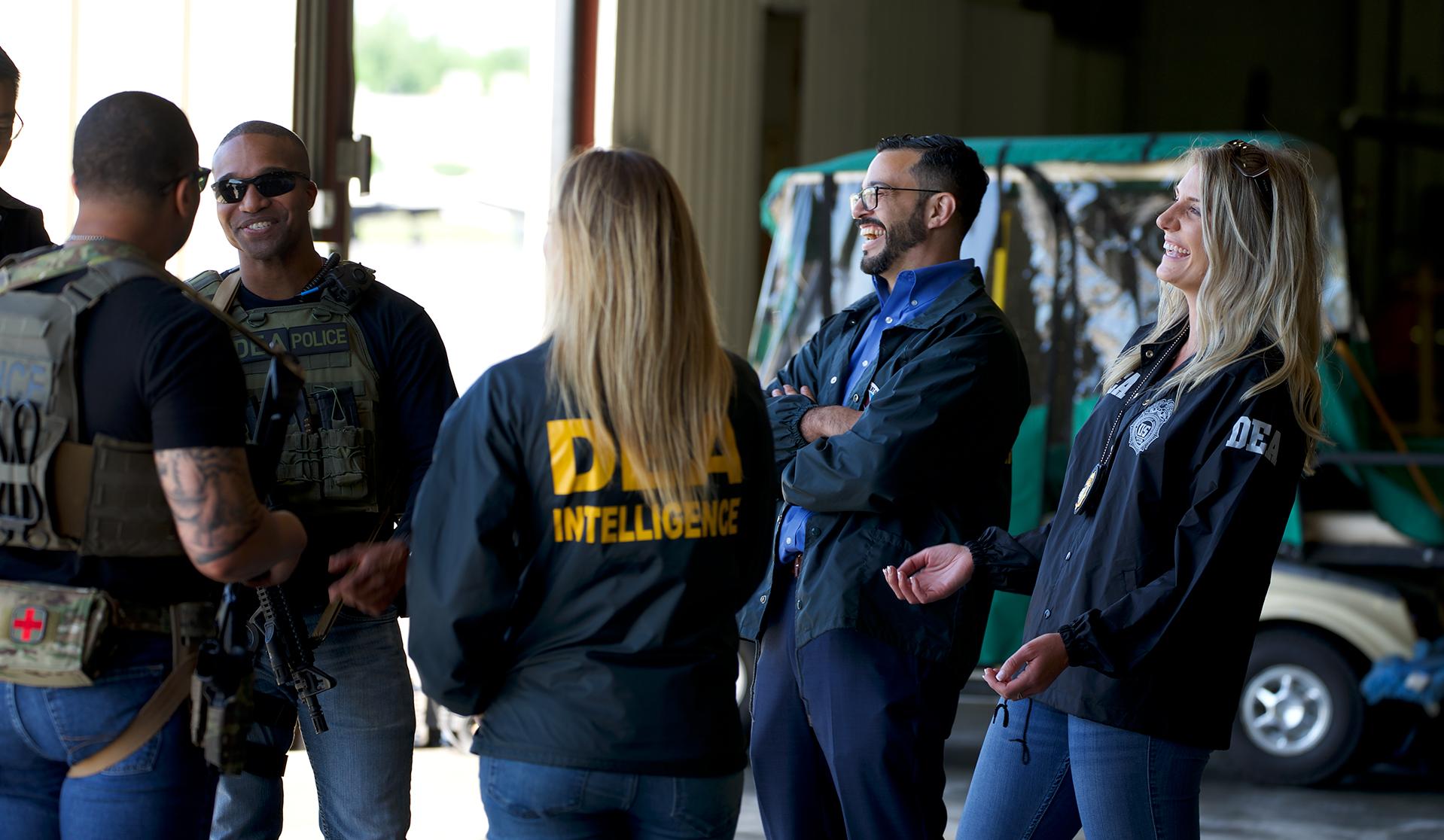From homeless encampment sweeps to mass incarceration, law enforcement activities are heightening the COVID-19 pandemic across the country. Although some agencies have adopted prevention measures, officers are raising concerns about how those measures are actually playing out on the ground, according to the Department of Justice’s Office of Inspector General (DOJ-OIG).
A newly released survey, conducted by the DOJ-OIG in July and August 2020, queried officers across five federal law enforcement agencies about their employers’ pandemic policies. Policy failures reported by the staff of one particular agency stand out: the Drug Enforcement Administration (DEA).
DEA agents—compared to employees of the Federal Bureau of Investigation (FBI), the Bureau of Alcohol, Tobacco, Firearms and Explosives (ATF), the US Attorneys Office (USAO); and the US Marshals Service (USMS)—reported in the largest proportions that their employer had not implemented key COVID-19 safety measures.
“No one in our office is adhering to guidelines provided by the CDC.”
The DEA failed to put in place COVID-19 screening procedures for its agents, according to 63.6 percent of survey respondents. Additionally, 22.3 percent said that “specific protocols” did not exist “to notify [them] if an individual [they had] been working with or taken into custody tests positive for COVID-19.”
The Centers for Disease Control and Prevention (CDC) recommends that employers implement symptom screening, like temperature checks, in their workplaces. The CDC also “encourages” employers to collaborate with public health bodies to organize contact tracing and notification systems. According to an April 20, 2020 memorandum, each federal agency is responsible “for determining the appropriate screening protocol for its facilities.”
Neither did measures to identify COVID-positive individuals not extend to the people the DEA criminalizes. Four in 10 DEA respondents said that they were not confident suspects “who exhibit symptoms of COVID-19” would be tested when taken into custody. FBI and ATF employees had slightly higher confidence on this question, at 48.4 percent and 41.8 percent, respectively.
CDC-recommended social distancing is nearly impossible in carceral settings, and prison cells can easily become COVID hotspots. Stanford University scientists who confirmed that the virus does indeed spreads faster on the inside have recommended widespread testing, in addition to decarceration.
Nearly one-quarter (24.6 percent) of DEA agents surveyed reported that the agency did not provide them with “adequate PPE (masks, gloves, face shields) and hand sanitizer to safely conduct” their jobs. Only the FBI had a larger proportion (27.6 percent) of agents giving that response. One federal officer from an undisclosed agency wrote in their survey response that, “Although our leadership team instructed people to wear masks, it was not enforced, and at times, employees were shamed by coworkers for wearing masks.”
“You can’t ignore that the culture war is central to this.”
The report suggested that “a cultural component may be contributing to whether employees practice recommended safety protocols.” COVID-19 has been politicized, particularly by outgoing President Donald Trump, and the refusal to abide by social distancing and mask-wearing has come to be a badge of many on the right.
Unprecedented current calls to defund or abolish law enforcement agencies may be egging them on in their resistance to COVID-19 safety measures. “You can’t ignore that the culture war is central to this,” former cop and professor Eugene O’Donnell told the Associated Press.
The DEA did not immediately respond to Filter‘s request for comment. Although responses by DEA agents suggest that the agency stands out for not meeting evidence-based recommendations, the DOJ-OIG notes that the survey data “should not be used to rate or rank agency performance,” adding that, “Agency responses to COVID-19 are complex and may involve activities that are not captured in the survey data.”
The reported failures seemed to span all agencies surveyed. “No one in our office is adhering to guidelines provided by the CDC or the Agency,” wrote one anonymous respondent from an unspecified agency.
“My agency’s response has been disjointed and inconsistent,” wrote another.
The report recommended “consistent communication and follow-through by senior leadership and management, as it relates to COVID-19 guidance and protocol” for “ensuring the safety, productivity, and health of their employees, as well as those with whom Department [of Justice] personnel interact.” It also recommended that the Department [of Justice] implement COVID screening and testing procedures at worksites.
But for advocates, changing workplace practices at agencies dedicated to criminalization and incarceration—systems shown to be detrimental to their victims’ health—will be inadequate. Drug-war policing is associated with increased overdose mortality and the spread of infectious diseases among people who inject drugs, which are among the reasons drug policy reformers seek to seek to abolish the DEA.
Photograph of DEA agents by DEA/public domain





Show Comments